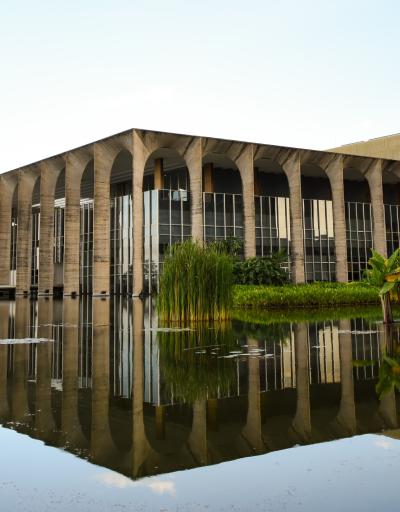
Educational Management and Technology in Brazil

Building Sustainable Education Systems
UNESCO offers national education authorities technical cooperation for elaborating analyses of educational policies, the design of education sector development plans and donor mobilization in support of national educational priorities, always considering local contexts to systematize and share successful actions in overcoming school challenges, such as curriculum reform, teacher policies, and technological advancements in education.
It is necessary, above all, to improve the teachers' recruitment, education, social status, and working conditions. The teachers can only respond to what is expected of them if they have knowledge and competencies, personal qualities, professional possibilities, and the required motivation.
Teacher Education and Training
Teacher status and teacher education are considered fundamental to improving educational quality. Equally important is establishing career development plans for teachers and other professionals in the education sector.
According to the Education 2030 framework, the UNESCO Member States 'ensure that teachers and educators are empowered, adequately recruited, well-trained, professionally qualified, motivated and supported within well-resourced, efficient and effectively governed systems.'


Technological Advancements for All
Teachers are the key to quality. At UNESCO in Brazil, the sectors work together to improve teacher qualifications through technology, developing actions that contribute to fostering critical thinking, helping teachers search for reliable sources of information, combating disinformation through equal access to information and knowledge, allowing citizens to learn to verify the news's veracity, and providing teachers with free access to good-quality materials for teaching and learning.
In addition, technical and vocational education projects stand out, encouraging students to develop studies using innovative technologies increasingly demanded by the job market.

Media and Information Literacy (MIL)
UNESCO strives to engender media and information-literate societies and considers all forms of media and other information providers, such as libraries, archives, museums, and the Internet, irrespective of the technologies used. Media and Information Literacy recognizes the primary role of information and media in our everyday lives. It lies at the core of freedom of expression and information – since it empowers citizens to understand the functions of media and other information providers, to evaluate their content critically, and to make informed decisions as users and producers of information and media content.
Open Educational Resources (OER)
UNESCO fosters the acquisition of basic computer skills for all and further implementation and use of information technology and communication (TIC) for sustainable development and peace.
A particular focus is on training teachers to sensitize them to the importance of MIL in the education process, enabling them to integrate MIL into their teaching, and providing them with appropriate pedagogical methods, curricula, and resources.

Educators Collection
History shows that education in Brazil has gone through different moments. Therefore, knowing the ideas and achievements of education thinkers is a necessary first step to improving pedagogical practices in Brazil.


